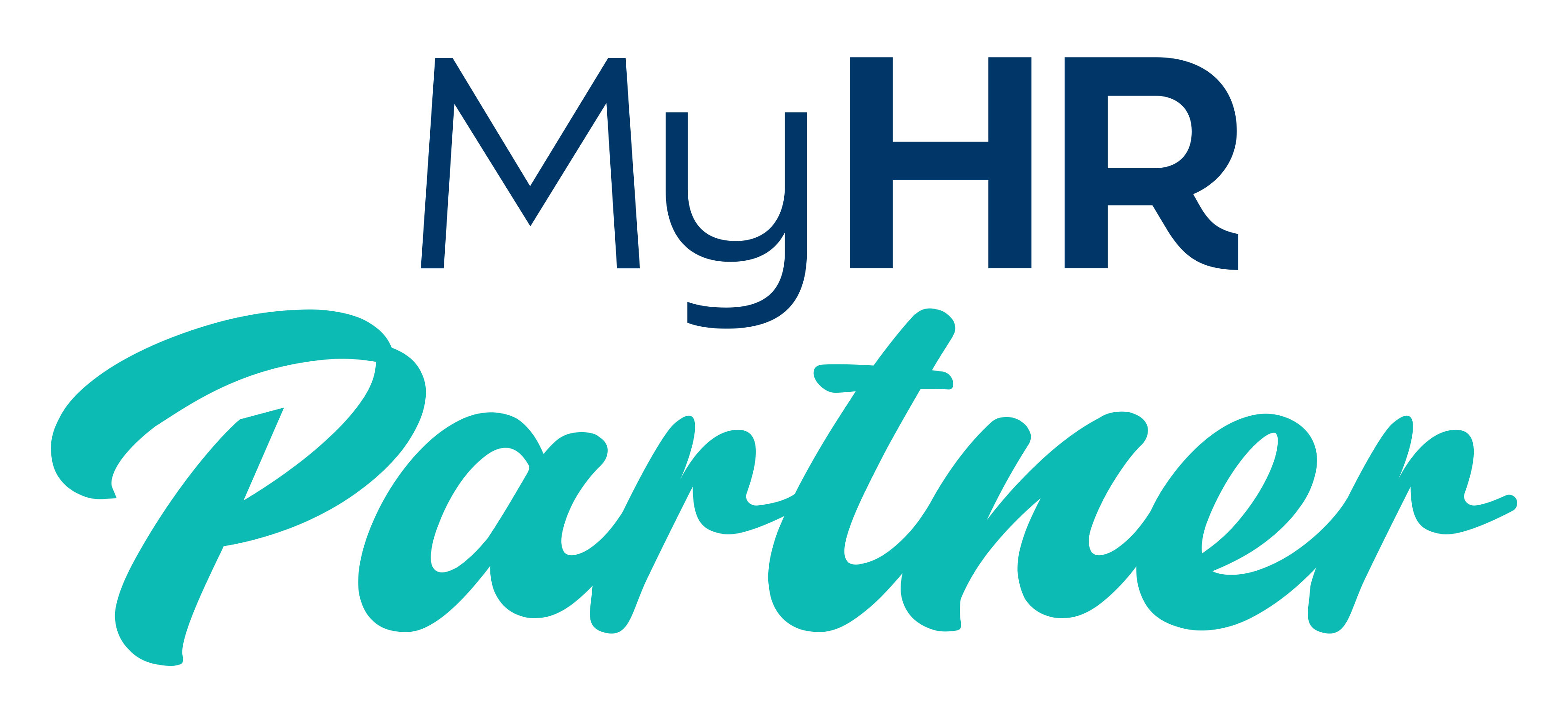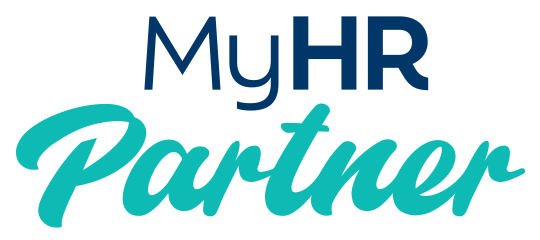Unlocking the Power of Human Resources: Welcome to Our Blog!
Discover HR updates, the latest trends, best practices, and innovative strategies shaping the world of Human Resources in Australia. From talent acquisition to employee engagement, we delve into the intricacies of HR management to empower organisations.
Let's navigate the dynamic landscape of HR together.

Podcast Episode 3: Navigating the Complexities of Ending Employment
In this episode, Karen Hillen, the host of the My HR Partner podcast, delves into the intricacies of ending employment. Termination is often considered one of the most challenging aspects of HR, and it requires careful handling to avoid legal pitfalls. Whether you’re an employer or an employee, understanding the processes and rules surrounding employment termination is crucial. Let’s explore some key takeaways from Karen’s insightful discussion.
The Nature of Employment Termination
Karen begins by highlighting that ending employment is typically associated with permanent employees. She points out that casual employees, by nature of their employment status, do not have a guarantee of ongoing employment. For casual employees, it can be simpler to end employment when work is no longer available, as they lack the same entitlements as permanent employees.
However, Karen advises employers to be cautious with casual employees who work regular hours consistently for an extended period, as they may be entitled to some of the same protections as permanent employees when it comes to unfair dismissal. It’s essential to understand the nuances of casual employment to avoid potential legal issues if you need to terminate the employment of a casual employee.
Unfair Dismissal: Rules and Processes
The conversation then shifts to the topic of unfair dismissal. Karen emphasises the importance of following a clear and fair process when terminating an employee to minimise the risk of unfair dismissal claims. Here are some key points:
Probation Period: For employees on probation, it is generally easier to terminate their employment if it’s not working out. Probation periods (typically six months) are designed for both the employer and employee to assess if the role is a good fit. Also consider the Minimum Employment Period when you are looking at the probation period. Employees need to be employed for at least 6 months before they can apply for unfair dismissal. Employees working for a small business need to be employed for at least 12 months before they can apply.
Termination Reasons: Termination can occur due to various reasons, including poor performance, bad behaviour, or misalignment with company values. However, it’s crucial to follow a well-documented and fair process, provide support and opportunities for improvement, and meet all legal requirements.
Employment Contracts: Karen stresses the importance of including probationary terms and termination procedures in employment contracts. Clear documentation helps employers and employees understand the process.
Redundancy: Understanding the Process
Redundancy is another challenging aspect of employment termination. Karen discusses scenarios where businesses may implement redundancy, such as changes in ownership, business closure, technological shifts, or industry downturns. Key points on redundancy include:
Genuine Redundancy: Employers should ensure that redundancy decisions are genuinely based on the position’s redundancy, not the employee. This means justifying that the role is no longer needed due to operational changes.
Redundancy Payments: Redundancy payments vary based on the employee’s length of service, with specific guidelines set by Fair Work. It’s essential to be aware of these payment obligations, as they differ for businesses with fewer than 15 employees.
Seeking Professional Advice
Throughout the podcast episode, Karen underscores the importance of seeking professional advice when navigating employment termination issues. Whether it’s drafting employment contracts, managing redundancies, or responding to unfair dismissal claims, having a knowledgeable HR partner like My HR Partner can make a significant difference in ensuring legal compliance and minimising risks.
Exit Interviews: A Valuable Feedback Tool
Finally, Karen touches on the often-overlooked practice of conducting exit interviews. These interviews can provide valuable insights into why employees are leaving and help identify areas for improvement within the organisation. Karen recommends using exit interview templates to gather structured feedback effectively.
Ending employment is a complex process that requires careful consideration of legal requirements and HR best practices. Employers and employees alike can benefit from understanding the rules and procedures involved. If you’re navigating the challenging terrain of employment termination, consider reaching out to My HR Partner for professional guidance and support. Remember that compliance and fair treatment are key to ensuring a smooth transition during this often-difficult phase of the employment journey.
For further expert advice on human resources or if you have any questions about anything HR related, get in touch.
Karen Hillen is your HR Partner, she helps businesses by providing HR support and advice services.
For the right HR support and advice, book a My HR Partner HR Advice call with Karen Hillen.
https://booking.myhrpartner.com.au/15minute-hr-advice-call
https://booking.myhrpartner.com.au/30minute-hr-advice-call
My HR Partner memberships provide 24/7 access to employment contracts, HR policies and documents, and HR advice calls. These services are tailored to the member’s needs and can be accessed on demand through phone or email for performance management issues, pay rates and Award advice.
Find out more about My HR Partner HR Hub membership here:
My HR Partner HR Hub Membership
Our Latest Blog Post

Podcast Episode 3: Navigating the Complexities of Ending Employment
In this episode, Karen Hillen, the host of the My HR Partner podcast, delves into the intricacies of ending employment. Termination is often considered one of the most challenging aspects of HR, and it requires careful handling to avoid legal pitfalls. Whether you’re an employer or an employee, understanding the processes and rules surrounding employment termination is crucial. Let’s explore some key takeaways from Karen’s insightful discussion.
The Nature of Employment Termination
Karen begins by highlighting that ending employment is typically associated with permanent employees. She points out that casual employees, by nature of their employment status, do not have a guarantee of ongoing employment. For casual employees, it can be simpler to end employment when work is no longer available, as they lack the same entitlements as permanent employees.
However, Karen advises employers to be cautious with casual employees who work regular hours consistently for an extended period, as they may be entitled to some of the same protections as permanent employees when it comes to unfair dismissal. It’s essential to understand the nuances of casual employment to avoid potential legal issues if you need to terminate the employment of a casual employee.
Unfair Dismissal: Rules and Processes
The conversation then shifts to the topic of unfair dismissal. Karen emphasises the importance of following a clear and fair process when terminating an employee to minimise the risk of unfair dismissal claims. Here are some key points:
Probation Period: For employees on probation, it is generally easier to terminate their employment if it’s not working out. Probation periods (typically six months) are designed for both the employer and employee to assess if the role is a good fit. Also consider the Minimum Employment Period when you are looking at the probation period. Employees need to be employed for at least 6 months before they can apply for unfair dismissal. Employees working for a small business need to be employed for at least 12 months before they can apply.
Termination Reasons: Termination can occur due to various reasons, including poor performance, bad behaviour, or misalignment with company values. However, it’s crucial to follow a well-documented and fair process, provide support and opportunities for improvement, and meet all legal requirements.
Employment Contracts: Karen stresses the importance of including probationary terms and termination procedures in employment contracts. Clear documentation helps employers and employees understand the process.
Redundancy: Understanding the Process
Redundancy is another challenging aspect of employment termination. Karen discusses scenarios where businesses may implement redundancy, such as changes in ownership, business closure, technological shifts, or industry downturns. Key points on redundancy include:
Genuine Redundancy: Employers should ensure that redundancy decisions are genuinely based on the position’s redundancy, not the employee. This means justifying that the role is no longer needed due to operational changes.
Redundancy Payments: Redundancy payments vary based on the employee’s length of service, with specific guidelines set by Fair Work. It’s essential to be aware of these payment obligations, as they differ for businesses with fewer than 15 employees.
Seeking Professional Advice
Throughout the podcast episode, Karen underscores the importance of seeking professional advice when navigating employment termination issues. Whether it’s drafting employment contracts, managing redundancies, or responding to unfair dismissal claims, having a knowledgeable HR partner like My HR Partner can make a significant difference in ensuring legal compliance and minimising risks.
Exit Interviews: A Valuable Feedback Tool
Finally, Karen touches on the often-overlooked practice of conducting exit interviews. These interviews can provide valuable insights into why employees are leaving and help identify areas for improvement within the organisation. Karen recommends using exit interview templates to gather structured feedback effectively.
Ending employment is a complex process that requires careful consideration of legal requirements and HR best practices. Employers and employees alike can benefit from understanding the rules and procedures involved. If you’re navigating the challenging terrain of employment termination, consider reaching out to My HR Partner for professional guidance and support. Remember that compliance and fair treatment are key to ensuring a smooth transition during this often-difficult phase of the employment journey.
For further expert advice on human resources or if you have any questions about anything HR related, get in touch.
Karen Hillen is your HR Partner, she helps businesses by providing HR support and advice services.
For the right HR support and advice, book a My HR Partner HR Advice call with Karen Hillen.
https://booking.myhrpartner.com.au/15minute-hr-advice-call
https://booking.myhrpartner.com.au/30minute-hr-advice-call
My HR Partner memberships provide 24/7 access to employment contracts, HR policies and documents, and HR advice calls. These services are tailored to the member’s needs and can be accessed on demand through phone or email for performance management issues, pay rates and Award advice.
Find out more about My HR Partner HR Hub membership here:
My HR Partner HR Hub Membership
We provide HR advice and support. We have trusted partners to assist with any employment law issues
outside of our scope.
More info
Suite 17, 741-743 Lawrence Hargrave Drive, Coledale NSW 2515
Suite 4, 133 Wharf Street, Tweed Heads NSW 2485
ABN 30 644 527 015
Our Latest Blog Post

Podcast Episode 3: Navigating the Complexities of Ending Employment
In this episode, Karen Hillen, the host of the My HR Partner podcast, delves into the intricacies of ending employment. Termination is often considered one of the most challenging aspects of HR, and it requires careful handling to avoid legal pitfalls. Whether you’re an employer or an employee, understanding the processes and rules surrounding employment termination is crucial. Let’s explore some key takeaways from Karen’s insightful discussion.
The Nature of Employment Termination
Karen begins by highlighting that ending employment is typically associated with permanent employees. She points out that casual employees, by nature of their employment status, do not have a guarantee of ongoing employment. For casual employees, it can be simpler to end employment when work is no longer available, as they lack the same entitlements as permanent employees.
However, Karen advises employers to be cautious with casual employees who work regular hours consistently for an extended period, as they may be entitled to some of the same protections as permanent employees when it comes to unfair dismissal. It’s essential to understand the nuances of casual employment to avoid potential legal issues if you need to terminate the employment of a casual employee.
Unfair Dismissal: Rules and Processes
The conversation then shifts to the topic of unfair dismissal. Karen emphasises the importance of following a clear and fair process when terminating an employee to minimise the risk of unfair dismissal claims. Here are some key points:
Probation Period: For employees on probation, it is generally easier to terminate their employment if it’s not working out. Probation periods (typically six months) are designed for both the employer and employee to assess if the role is a good fit. Also consider the Minimum Employment Period when you are looking at the probation period. Employees need to be employed for at least 6 months before they can apply for unfair dismissal. Employees working for a small business need to be employed for at least 12 months before they can apply.
Termination Reasons: Termination can occur due to various reasons, including poor performance, bad behaviour, or misalignment with company values. However, it’s crucial to follow a well-documented and fair process, provide support and opportunities for improvement, and meet all legal requirements.
Employment Contracts: Karen stresses the importance of including probationary terms and termination procedures in employment contracts. Clear documentation helps employers and employees understand the process.
Redundancy: Understanding the Process
Redundancy is another challenging aspect of employment termination. Karen discusses scenarios where businesses may implement redundancy, such as changes in ownership, business closure, technological shifts, or industry downturns. Key points on redundancy include:
Genuine Redundancy: Employers should ensure that redundancy decisions are genuinely based on the position’s redundancy, not the employee. This means justifying that the role is no longer needed due to operational changes.
Redundancy Payments: Redundancy payments vary based on the employee’s length of service, with specific guidelines set by Fair Work. It’s essential to be aware of these payment obligations, as they differ for businesses with fewer than 15 employees.
Seeking Professional Advice
Throughout the podcast episode, Karen underscores the importance of seeking professional advice when navigating employment termination issues. Whether it’s drafting employment contracts, managing redundancies, or responding to unfair dismissal claims, having a knowledgeable HR partner like My HR Partner can make a significant difference in ensuring legal compliance and minimising risks.
Exit Interviews: A Valuable Feedback Tool
Finally, Karen touches on the often-overlooked practice of conducting exit interviews. These interviews can provide valuable insights into why employees are leaving and help identify areas for improvement within the organisation. Karen recommends using exit interview templates to gather structured feedback effectively.
Ending employment is a complex process that requires careful consideration of legal requirements and HR best practices. Employers and employees alike can benefit from understanding the rules and procedures involved. If you’re navigating the challenging terrain of employment termination, consider reaching out to My HR Partner for professional guidance and support. Remember that compliance and fair treatment are key to ensuring a smooth transition during this often-difficult phase of the employment journey.
For further expert advice on human resources or if you have any questions about anything HR related, get in touch.
Karen Hillen is your HR Partner, she helps businesses by providing HR support and advice services.
For the right HR support and advice, book a My HR Partner HR Advice call with Karen Hillen.
https://booking.myhrpartner.com.au/15minute-hr-advice-call
https://booking.myhrpartner.com.au/30minute-hr-advice-call
My HR Partner memberships provide 24/7 access to employment contracts, HR policies and documents, and HR advice calls. These services are tailored to the member’s needs and can be accessed on demand through phone or email for performance management issues, pay rates and Award advice.
Find out more about My HR Partner HR Hub membership here:
My HR Partner HR Hub Membership
We provide HR advice and support.
We have trusted partners to assist with
any employment law issues outside
of our scope.
More info
PO Box 1079
Coolangatta QLD 4225
ABN 30 644 527 015







